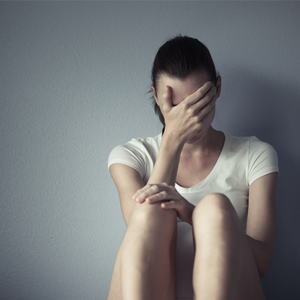
October is springtime – the time of new beginnings – and now for the first time in South Africa October is officially Mental Health Awareness Month.
This prompts us to say “Hope springs eternal”, as it hopefully heralds a new approach to public mental health care by Government. A lot needs to be done to normalise and humanise mental health in this country, but let’s hope that this is the first signs of a new approach.
Reducing stigma and discrimination
World Mental Health Awareness Day on 10 October, supported by the World Health Organisation (WHO), has been in existence for almost three decades.
The theme for 2019 is critically important: suicide prevention. The objective is not only educating the public about mental health, but also to reduce the stigma and discrimination that people with mental illness are subjected to – which far too often leads to depression and eventual suicide.
A recent US study found that between 2009 and 2017 the rate of depression among teenagers increased by more than 60%. Ideation, plans and attempts at suicide have also increased significantly in this age group.
Strategic Action Plan
Organisations such as the Ithemba Foundation – ithemba means hope in isiXhosa – and the South African Federation for Mental Health (SAFMH), together with the WHO, have traditionally raised awareness of the importance of mental health on 10 October.
The SAFMH is advocating that the so-called Strategic Action Plan form part of South Africa’s Mental Health Policy Framework, because without awareness all well-intended policies and action plans will have no effect.
In addition, the Department of Social Development has declared December National Disability Rights Awareness Month, which includes mental health.
At the end of 2018, Government officially announced that from 2019 the entire October will be Mental Health Awareness Month in South Africa. There are no clear answers, but it is believed that this decision is a result of the ombud report on the Life Esidimeni tragedy in which 143 people died in 2016.
According to SAFHM National Executive Director, Ms Bharti Patel, there is “definitely a lot of pressure” on the Department of Health to prioritise mental health.
Too few people seek treatment
In a Government declaration in December last year it was stated that mental health problems such as depression, anxiety, substance abuse and job stress are common in South Africa, affecting both individuals and the broader community. These problems also have a direct impact on workplaces through absenteeism, reduced productivity, and increased costs.
A crucial fact is that although mental disorders can be treated, like any other disease, very few South Africans seek treatment. We are, however, not alone in this, as an estimated 400 million people worldwide suffer from mental disorders.
In May this year, during the US Mental Health Awareness Month, mental health activist and former First Lady, Rosalyn Carter, said, “We are at the beginning of a global mental health revolution.” Access to mental health services has never been more critical, she added. In the US mental disorders among children and adolescents have reached a crisis level, with the country experiencing its highest suicide rate in 50 years.
A new study in the United Kingdom also found that happiness among young people is at its lowest level in a decade.
A disabled society
It’s clear: We need to end the silence and put pressure on governments and the private sector to prioritise mental health care.
With mental health disorders increasing globally, and with depression the leading cause of disability, according to the WHO, one in four of us will experience a mental illness at some point in our lives, also affecting those we love. It's often easier to ignore the symptoms, but it is essential that we start speaking up about mental health.
If we don't start paying more attention to mental health, we, as a society, will become more disabled, as we simply cannot function if people are sick. The time has come to let our voices be heard – first by empowering ourselves with knowledge about mental health and then by becoming activists, each and everyone of us. Without good mental health, we cannot be a successfully functioning nation.
Sources:
https://www.gov.za/speeches/mental-health-awareness-month-2019
https://edition.cnn.com/2019/05/30/opinions/global-mental-health-revolution-rosalynn-carter-jallah/index.html
https://www.who.int/news-room/fact-sheets/detail/mental-disorders
http://www.samj.org.za/index.php/samj/article/viewFile/7938/5796https://www.theguardian.com/society/2019/aug/28/childhood-happiness-lowest-level-in-decade-says-report
https://time.com/5550803/depression-suicide-rates-youth/?utm_source=emailshare&utm_medium=email&utm_campaign=email-share-article&utm_content=20190901
Professor Lizette Rabe of Stellenbosch University is the founder of the Ithemba Foundation – ithemba means hope – to raise awareness and support research.




 Publications
Publications
 Partners
Partners











